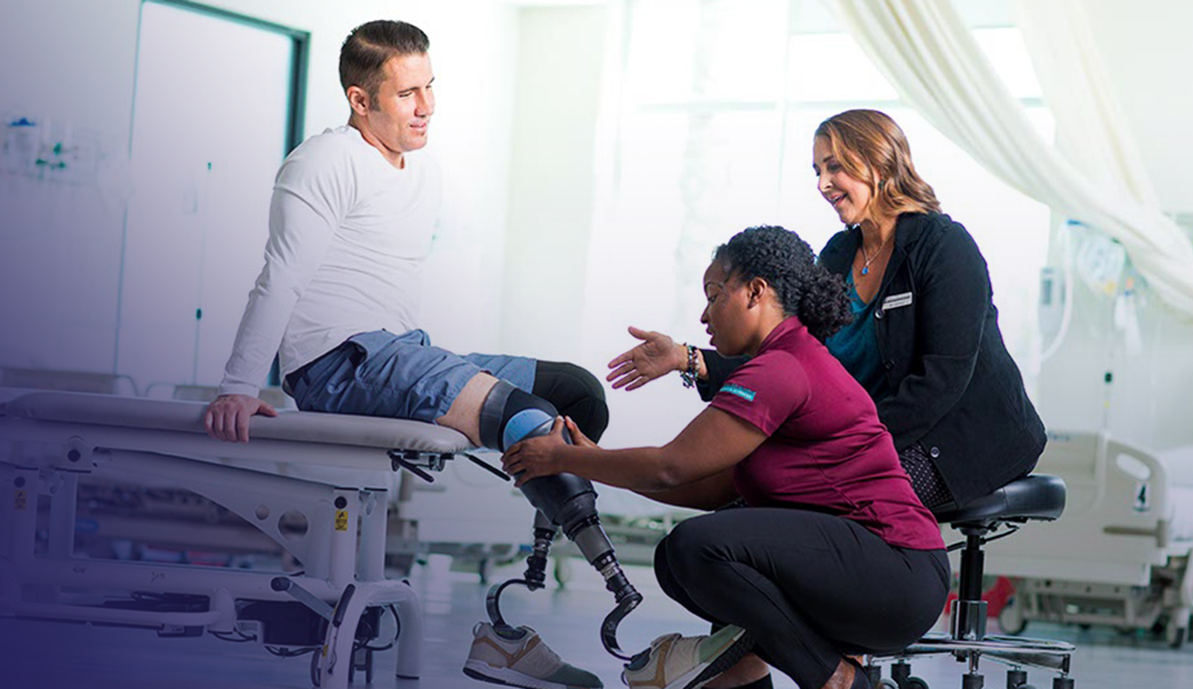
Why is it Important to Find the Best Orthopedic Surgeon Specialist in Florida?
When we are in pain but we cannot point out the exact source of the pain or discomfort, we tend to tough it out and keep going on with our lives. Other times we can be the victims of a car accident, a slip-and-fall, or even a sports injury. With either of these scenarios, your best bet to get well and return to your best healthy self is to consult an orthopedic surgeon specialist.
Not many people know when they need to consult with an orthopedic specialist or even where to look for one near them. Some even avoid these specialists because they are afraid the doctor will pressure them to solve their health issues through surgical treatment.
First, we must understand that orthopedic surgeons are doctors who have specialized in the musculoskeletal system - the bones, joints, ligaments, tendons, and muscles, which are essential to our movement and living our everyday life.
“Orthopaedics is key to managing and treating bone and joint pain, which most of us will experience in our lifetimes,” explains Dr. L. Scott Levin, Professor of Plastic Surgery at Pennsylvania University. “Once you understand the basics, you can start addressing your condition and getting your life back on track.”
There is no need to live in pain
The number of musculoskeletal conditions and injuries that can generate pain are many, and it is an orthopedic doctor who will help you reduce or completely eliminate it. It does not matter what kind of pain you are feeling, whether dull or sharp, chronic or acute, it is important that you schedule an appointment with an orthopedic specialist as soon as possible.
When you experience pain, swelling, injury, and joint stiffness, it can affect how you live, and it can seriously limit your enjoyment of life. A good orthopedic doctor will diagnose the issue and work alongside you to a better range of motion and get you back to your normal self.
Will an orthopedic doctor help me?
If you are feeling any of these types of pains, it is time to look for Orthopedic Surgeon Specialists in Florida: knee pain, hip pain, shoulder, elbow, wrist or hand pain, ankle or foot pain, and back or neck pain. An orthopedic doctor will take the time to sit with you and talk to you about your symptoms to determine the best treatment for you. They will help you treat injuries and help you prevent them too.
On occasions, orthopedic doctors might need to work with a team of medical specialists like therapists, rehabilitation doctors, and pain management specialists to give you the best treatment available for your needs and make sure that your quality of life improves.
Also, if you are into sports, regular visits to an orthopedic specialist will help with any broken bones, compression fractures, stress fractures, dislocations, muscle injuries, and tendon tears or ruptures you may experience. Many professional athletes often have an orthopedist as part of their support team to help them prevent future injuries and optimize their game.
Orthopedic surgeons and orthopedic specialists
When you search for Orthopedic Surgeon Specialists in Florida, you might be overwhelmed by all the options available and the different titles and specializations. It is important that you understand the difference between an Orthopedic Surgeon specialist and an orthopedic specialist.
Often “orthopedic surgeon” is used to refer to all orthopedic doctors, mostly because orthopedic surgeries are common procedures. However, it is important to know that orthopedic surgeons are orthopedic specialists, but not every orthopedic specialist that you will encounter is a surgeon.
Orthopedic specialists can assess, diagnose, and treat your orthopedic ailment using non-invasive treatments. Most specialists tend to follow treatments that typically use advanced non-surgical techniques, like minimally invasive or computer-assisted procedures.
When looking for an orthopedic surgeon, you will discover that the field is so vast that most surgeons sub-specialize to better serve people that suffer from pain or discomfort in a specific area. There are hand and wrist specialists, those dedicated to treating hip or knee patients, or those who only attend arthritis cases. This focus on particular ailments allows them to be extremely precise when diagnosing, treating, and preventing orthopedic problems.
When orthopedic surgeons decide to sub-specialize, it gives them greater knowledge and experience in their area of expertise, which is extremely helpful when they have to handle complex and high-risk cases. This is extremely relevant when the ailment requires surgery as part of the determined treatment.
Surgical vs Non-Surgical Treatment
As mentioned at the beginning, many people associate orthopedic treatment and doctors with unavoidable surgery. But when you have the best orthopedic doctor taking care of your ailment, you will have the opportunity to see the different options available. Thus, your orthopedic specialist might say resorting to surgery to return you to your optimal physical condition might not be necessary.
For example, some injuries that could require either non-surgical or surgical treatment are fractures, like a broken hip, broken wrist, kneecap, compression fracture of the vertebrae; tendon injuries such as Achilles tendon rupture or ACL rupture, meniscus tear, ankle sprain, plantar fascistic, labral tear of the shoulder or the hip, rotator cuff tear which is a common cause of shoulder pain, tennis elbow, carpal tunnel syndrome, and stress fracture.
Some common surgical procedures are joint replacement surgery, joint revision surgery, arthroscopy, spinal surgery to relieve pressure off nerves, disc replacement surgery and spinal fusion surgery, soft tissue repair, such as procedures to repair torn or ruptured tendons or ligaments, bone fracture repair, osteotomy to correct bone deformity, debridement or removal or damaged tissue or bone, excision or removal of bone and soft tissue tumors.
While non-surgical procedures include: fluid drainage, also known as aspiration injections (injecting steroids into the bursa, ultrasound-guided steroid injections in the knee, facet joint injection, cervical epidural injection, lumbar epidural steroid injection), joint manipulation, bracing or casting, visco supplementation to treat arthritis, extra corporeal shock wave therapy (ESWT) and lumbar sympathetic block.
When selecting the best Orthopedic Surgeon Specialist in Florida, you must keep in mind that even though many conditions can be treated and even be cured, some demand lifelong treatments. Selection of the best Orthopedic specialist for you is key when this ultimately will have to demand your trust for years to come. An excellent orthopedic doctor will spend most of his time treating patients far from an operating table or in an emergency room or looking after patients in hospital wards.
Becoming an orthopedic specialist takes about 10 years of schooling and training post-college. And after that, many of them sub-specialize within orthopedics to offer the best treatment possible.
If at any time, you experience any of the following symptoms, it is very important that you make an appointment as soon as possible with an orthopedic specialist:
● pain, stiffness, or discomfort, making daily activities difficult● chronic pain (pain over 12 weeks)● decreased range of motion● instability while walking or standing● progressive weakness or numbness in the arms or legs● soft tissue injury that does not improve after a few days
You can count on Injury Assistant Network, which is the perfect place to find the best orthopedic surgeon specialist in Florida that you are looking for.
Share with your friends:



